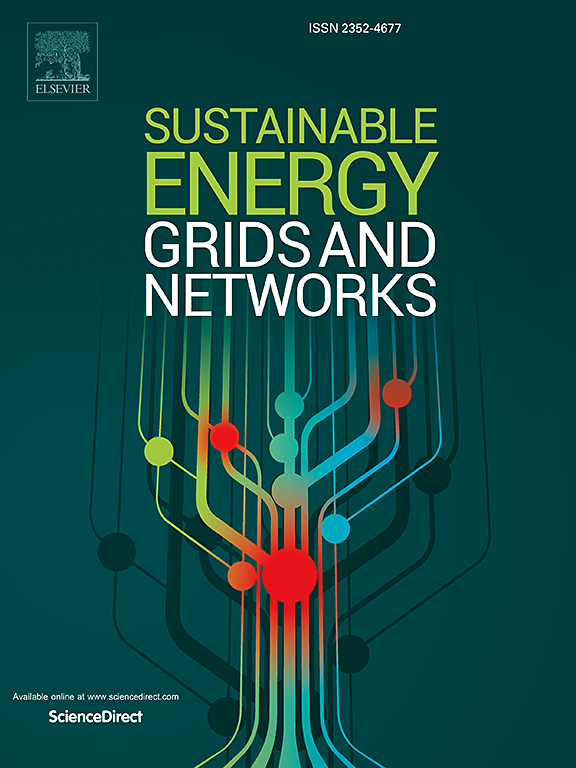基于数据驱动深度强化学习的绿色远程电信智能供电调度
IF 5.6
2区 工程技术
Q2 ENERGY & FUELS
引用次数: 0
摘要
现代移动通信网络的骨干是由具有重要功能的无线电信基站组成的。在偏远或欠发达地区,这些基站的电力供应往往不可靠或完全没有电力供应,这是一个重大挑战。综合能源系统,结合太阳能、风能、柴油发电机和电网,提供了一个有前途的解决方案。这些系统的有效和智能调度对于确保基站不间断运行、最大限度地整合可再生能源和降低总体能源支出至关重要。能源需求和能源供应固有的双重不确定性是智能调度的主要障碍。本研究提出了一个基于经验风险最小化(ERM)、预测方法和深度强化学习(DRL)的集成能源系统的鲁棒能源调度建模框架。该框架战略性地协调各种能源的激活——电网、太阳能、柴油发电机和电池存储——以满足波动的基站电力需求。通过将预测控制与DRL无缝融合,利用滚动预测作为系统状态指标,并采用近似策略优化(PPO)算法进行训练,该模型在可再生能源利用效率和总能源成本方面均明显优于传统的预测控制和基于规则的方法,并得到了远程电信基站实际数据的验证。本文章由计算机程序翻译,如有差异,请以英文原文为准。
Smart energy supply scheduling for green remote telecom with data-driven deep reinforcement learning
The backbone of modern mobile communication networks is comprised of wireless telecom base stations, which serve vital functions. A significant challenge arises in remote or underdeveloped regions where power supply to these base stations is often unreliable or entirely absent. Integrated energy systems, combining solar, wind, diesel generators, and the electrical grid, present a promising solution. Effective and intelligent scheduling of these systems is paramount for ensuring uninterrupted base station operation, maximizing the integration of renewable energy, and lowering overall energy expenses. The inherent dual uncertainty of energy demand and supply poses a primary obstacle to intelligent scheduling. This research proposes a robust energy scheduling modeling framework for integrated energy systems, grounded in empirical risk minimization (ERM), forecasting methodologies, and deep reinforcement learning (DRL). This framework strategically coordinates the activation of various energy sources – grid, solar, diesel generators, and battery storage – to meet fluctuating base station power demands. By seamlessly blending predictive control with DRL, utilizing rolling forecasts as system state indicators, and employing the proximal policy optimization (PPO) algorithm for training, the proposed model demonstrably surpasses traditional predictive control and rule-based methods in both renewable energy utilization efficiency and total energy cost, as evidenced by real-world data from remote telecom base stations.
求助全文
通过发布文献求助,成功后即可免费获取论文全文。
去求助
来源期刊

Sustainable Energy Grids & Networks
Energy-Energy Engineering and Power Technology
CiteScore
7.90
自引率
13.00%
发文量
206
审稿时长
49 days
期刊介绍:
Sustainable Energy, Grids and Networks (SEGAN)is an international peer-reviewed publication for theoretical and applied research dealing with energy, information grids and power networks, including smart grids from super to micro grid scales. SEGAN welcomes papers describing fundamental advances in mathematical, statistical or computational methods with application to power and energy systems, as well as papers on applications, computation and modeling in the areas of electrical and energy systems with coupled information and communication technologies.
 求助内容:
求助内容: 应助结果提醒方式:
应助结果提醒方式:


